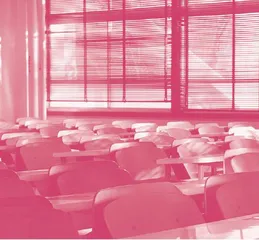Educated1—Escape from Her Family of Origin教育助她飞离原生家庭
作者: 米歇尔·迪安 阮沚萱

A coming-of-age memoir that chronicles a young woman’s efforts to study her way out of a tough childhood in Idaho and find herself through books.
《你当像鸟飞往你的山》是一部成长回忆录,记述了一位年轻女子如何通过学习走出她在爱达荷州的苦难童年,以及她通过书籍发现自我的经历。
We hear a lot about the edges of the US these days. Geographically, these places might be in the middle of the continent, but they are on the periphery of the country’s economic life, and often the social one too. The people who live there are desperate and pitiable, we are told, just as much as they are brutal and superstitious.
近来,我们听到许多关于美国边缘地区的消息。从地理位置来看,这些地方可能位于美国的中部,但它们处在这个国家经济生活的边缘,而且通常也是社会生活的边缘。有人告诉我们,生活在那里的人们既绝望又可怜,正如他们既野蛮又迷信一样。
Tara Westover’s memoir is about being from just such a place and people. She was born to Mormon fundamentalist parents in Idaho, the youngest of seven. Her father Gene was the prophet of their small family, convinced the world was going to end at the stroke of the millennium. (When it did not, the author observes, the “disappointment in his features was so childlike, for a moment I wondered how God could deny him this”.) He does not believe in sending his children to school, but does believe that dairy products are sinful, owing to a message from God. “Isaiah doesn’t say which is evil, butter or honey,” is how he delivers the good news. “But if you ask, the Lord will tell you!”
塔拉·韦斯特弗的回忆录讲的就是出身于这样一个地方、来自这样一个群体的故事。她出生在爱达荷州的一个摩门教原教旨主义教徒家庭,是七个孩子中最小的一个。父亲吉恩是他们小家庭中的预言家,他坚信世界会在千禧年到来的那一刻终结。(然而,世界并没有终结。作者写道:“他眉目间的失望看起来是如此孩子气,一时间我想知道上帝怎么可以剥夺他见证预言成真的机会。”)他不赞成把孩子送去学校,但是相信乳制品是有罪的,这是他从上帝那里得来的信息。“以赛亚没有说奶油和蜂蜜哪个是罪恶的,”他这样传递福音,“但是如果你询问,上帝必会告诉你!”
Faye, Westover’s mother, largely defers to2 her husband, in spite of what evidently were some doubts about the divinity of his testimony. She finds some independence in her roles as a kind of faith healer and as an experienced but apparently unlicensed midwife. Eventually, she takes up essential oils, something called muscle testing, and “energy work”. That all these activities appear somewhat contrary to Mormon religious doctrine is something Westover never explicitly addresses. In the same manner that her child self once did, she seems to accept her mother’s explanations. Muscle testing, for example, is an “act of faith in which God spoke through her fingers”.
韦斯特弗的母亲法耶在很大程度上顺从丈夫,尽管她明显对丈夫作为上帝见证人的神性有点怀疑。作为一名某种意义上的信仰治疗师以及一名经验丰富但显然没有执照的助产士,她在自己的角色中找到了些许独立性。最后,母亲致力于精油事业,也就是所谓的肌肉力量测试和“能量工作”。这些活动似乎多少都与摩门教信条背道而驰,但韦斯特弗对此从没有明确提及。就像她幼时曾经做过的那样,她似乎接受了母亲的解释。例如,肌肉力量测试是“表达信仰的行为,上帝通过她的手指来发话”。
In this account—Westover’s family dispute her version of events—life is grim in all the ways one might expect. Money is a constant struggle; Gene works largely in scrap metal but it isn’t enough. Cars driven by exhausted family members crash during long drives, but hospitals and western medicine are forbidden so injuries persist and fester. An amazing number of freak accidents befall the male Westovers: leg shreddings, burnings. The author herself is repeatedly beaten and abused by an elder brother who charges into3 her room while she’s sleeping and fastens his hands around her throat, calling her a whore because of her friendship with a local boy.
在这样的叙述中——韦斯特弗的家人否认她对各个事件的看法——生活的方方面面都和人们所能想到的一样严峻。钱总是不够花。吉恩主要捡废铜烂铁来卖,但是这还不够。疲惫的家庭成员们在长途驾驶过程中发生了车祸,但是家里禁止去医院或吃西药,因此伤口始终不愈合并渐渐溃烂。韦斯特弗家的男性成员身上发生了数量惊人的怪异事故:腿部撕裂、烧伤。作者本人多次遭到其中一位哥哥的殴打和虐待。哥哥趁她睡觉时冲进她的房间,双手掐住她的喉咙,叫她妓女,因为她与当地一个男孩交朋友。
And she gradually makes her way out of all of it. She has no formal education but manages to study her way to college. She struggles initially but gets good enough marks to do a PhD at Cambridge. And in the course of all that, Westover writes, she found herself—through what some might call a “transformation” and others a “betrayal”. As she puts it in the last line of the book: “I call it an education.”
作者逐渐摆脱了这一切。她没有接受过正规教育,但她成功地通过学习进入了大学。刚开始她学得很艰难,但还是凭借着足够好的成绩赴剑桥攻读博士学位。韦斯特弗写道,在整个过程中,她发现了自我——通过一些人称作“转变”而另一些人称作“背叛”的方式。正如她在书的最后一行所说:“我称之为教育。”
If this were the 1990s, a snarky columnist might have already slapped a genre label on this book from the summary alone, deriding it as an example of “misery lit4”. These chronicles of tough beginnings were enormously popular; Frank McCourt’s Angela’s Ashes and Augusten Burroughs’s Running With Scissors topped bestseller charts. Critics are apt to castigate the sentimentalism that often thuds5 through these books—people in them are villains and heroes, the messiness of real life condensed into easier answers about who was right or wrong. And when James Frey’s A Million Little Pieces turned out to be largely bunk6, critics everywhere secretly rejoiced. They knew it, they said. They knew these books were dishonest melodramas7.
如果是在20 世纪90 年代,尖刻的专栏作家可能仅凭摘要就给这本书打上流派标签,嘲笑它是“苦难文学”的典型。这些讲述苦难出身的纪实作品一度非常流行,弗兰克·麦考特的《安琪拉的灰烬》以及奥古斯滕·伯勒斯的《拿着剪刀奔跑》都曾占据畅销书排行榜榜首。批评家倾向于谴责这些书经常从头到尾充斥着感伤——书中的人不是恶棍就是英雄,真实生活的错综复杂被压缩成简单的孰是孰非的问题。当詹姆斯·弗雷的《百万碎片》最终被证明基本都是空话时,各地的书评人都暗自高兴。他们说自己早就知道了。他们早就知道这些书是骗人的情节剧。
Westover’s narrative style—episodic, meditative and repetitive—doesn’t embrace melodrama to the extent that many of those books did. Her voice is slightly flimsy8, scaffolding9 with sheets of plastic floating off, as if still in the process of building itself. Other than as a sort of articulate vortex of suffering, one hasn’t much of a sense of her. Educated relies on the conceit that Westover was saved by books, but at the end I had a sense of our narrator still hiding behind her degrees and certificates, not quite ready to step into the light. I kept thinking of Mary Karr’s The Liars’ Club, a memoir of her hardscrabble10 Texas upbringing, and how Karr’s voice was one you couldn’t ignore.